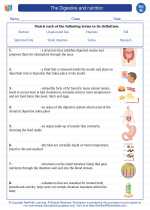Mechanical Engineering
Mechanical engineering is a diverse and versatile field that involves the design, development, and maintenance of mechanical systems and processes. It encompasses a wide range of industries including automotive, aerospace, energy, and manufacturing. Mechanical engineers use principles of physics and materials science to create and improve mechanical systems, products, and machines.
Key Concepts in Mechanical Engineering
- Statics and Dynamics: Understanding the behavior of stationary and moving objects, and the forces acting upon them.
- Thermodynamics: Studying the relationship between heat, work, and energy transfer, and its applications in engines and power plants.
- Materials Science: Exploring the properties of materials and their applications in designing mechanical components and structures.
- Fluid Mechanics: Analyzing the behavior of fluids and their interactions with solid objects, crucial for designing pumps, turbines, and other fluid-based systems.
- Mechanical Design: Creating and optimizing mechanical systems and components, often using computer-aided design (CAD) software.
- Manufacturing Processes: Understanding methods of producing mechanical parts and products, including casting, machining, and additive manufacturing.
- Robotics and Automation: Applying mechanical principles to develop automated systems and robotic devices for various applications.
Study Guide for Mechanical Engineering
When studying mechanical engineering, it's important to have a strong foundation in mathematics and physics. Here are some key topics and resources to help you succeed in this field:
- Mathematics: Solid understanding of calculus, differential equations, and linear algebra is essential for analyzing and solving mechanical engineering problems. Resources like Khan Academy and MIT OpenCourseWare offer comprehensive math tutorials and courses.
- Physics: Mastery of classical mechanics, thermodynamics, and fluid dynamics is crucial. The Feynman Lectures on Physics and University of Colorado Boulder's Physics Classroom are great resources for learning and understanding physics principles.
- Materials Science: Familiarize yourself with the properties of materials, such as strength, stiffness, and thermal conductivity. The book "Materials Science and Engineering: An Introduction" by William D. Callister Jr. is a highly recommended resource.
- Computer-Aided Design (CAD): Practice using CAD software, such as SolidWorks or AutoCAD, to create and analyze mechanical designs. Many universities offer online tutorials and courses for CAD software.
- Thermodynamics and Heat Transfer: Understand the laws of thermodynamics and their applications in energy systems and heat transfer. "Fundamentals of Engineering Thermodynamics" by Michael J. Moran and Howard N. Shapiro is a widely used textbook in this area.
- Fluid Mechanics: Learn about the behavior of fluids and their applications in engineering. "Fluid Mechanics" by Frank M. White is a well-regarded textbook for gaining a deep understanding of fluid mechanics concepts.
- Manufacturing Processes: Gain knowledge of various manufacturing methods and processes, from traditional machining to modern additive manufacturing. The book "Manufacturing Engineering and Technology" by Serope Kalpakjian and Steven R. Schmid is a comprehensive resource in this area.
By mastering these key concepts and utilizing the recommended resources, you can build a solid foundation in mechanical engineering and prepare for a successful career in this dynamic field.
.◂Science Worksheets and Study Guides Eighth Grade. The Digestive System & Nutrition
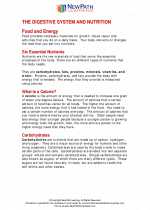
 Worksheet/Answer key
Worksheet/Answer key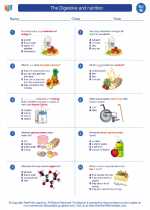
 Worksheet/Answer key
Worksheet/Answer key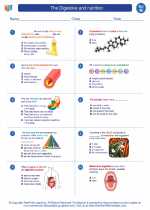
 Worksheet/Answer key
Worksheet/Answer key
 Vocabulary/Answer key
Vocabulary/Answer key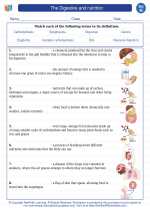
 Vocabulary/Answer key
Vocabulary/Answer key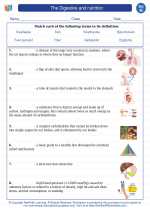
 Vocabulary/Answer key
Vocabulary/Answer key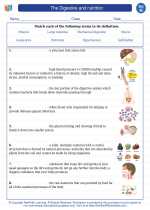
 Vocabulary/Answer key
Vocabulary/Answer key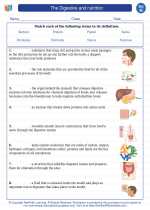
 Vocabulary/Answer key
Vocabulary/Answer key